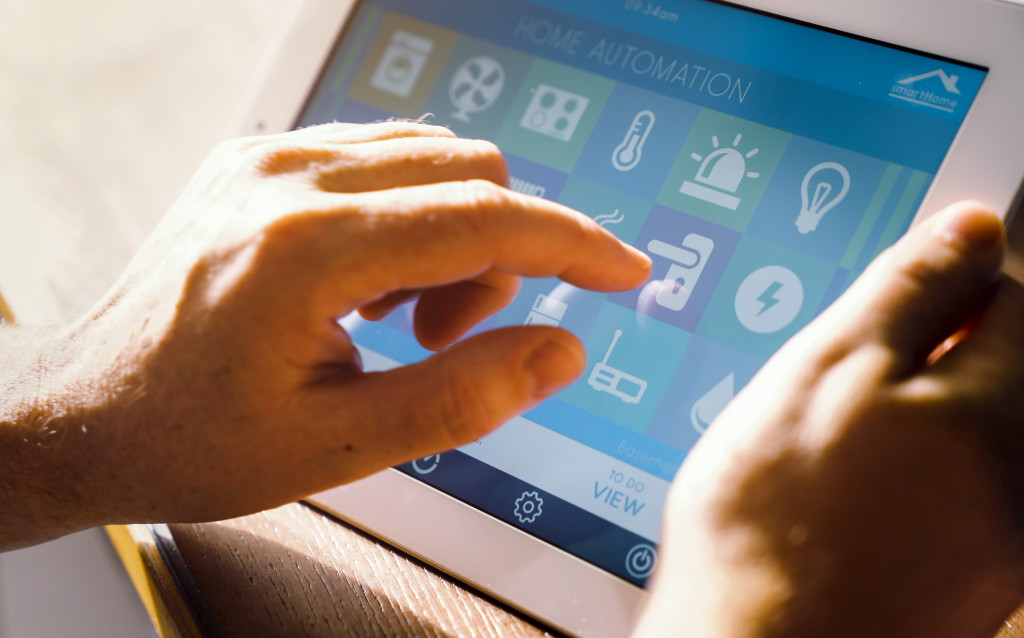The future of housing is automation. Around the world, more and more households are embracing smart home devices that have the capacity to connect to the internet, collect and share data, and perform different tasks all by themselves. It is not just cell phones and speakers: television, refrigerators, ovens, light bulbs, thermostats, mirrors, faucets, showers, and mattresses have grown smarter. These devices are capable of doing far more than what they were initially intended to do, and they promise to make life easier for humans.
It is common to see smart home devices in regular homes. According to recent estimates, 37 percent of all households across the United States own at least one smart home device in 2020. Google’s Nest, which sells security cameras, video doorbells, speakers, thermostats, and Wi-Fi systems, is the most-owned smart home brand across the country.
By 2025, the smart home market in the country is expected to reach $47 billion, twice the revenue made in 2020.
What People Want
A connected home is growing in popularity as access to smart devices as well as faster broadband become more easily accessible. Moreover, millennials and Generation Z, young people who were born and grew up in the age of the internet, are graduating or have already graduated from university. They are now capable of living on their own.
In fact, the real estate market is now dominated by millennials, those who were born between 1981 and 1996. Meanwhile, the oldest of those who were born between 1997 and 2012, those who considered Generation Z or Gen Z-ers, have started to participate in the real estate market.
Both millennials and Gen Z-ers are the so-called digital natives. They are as comfortable navigating the internet as they do in the real world. Both were the first two generations to be raised with smartphones and social media around. It goes without saying that young people are tech-savvy.
A smart home, therefore, will appeal to them. One survey found that the majority of millennials (86 percent) are willing to pay up to 20 percent more for a smart home or rental property. They want not just a smart television or speaker. They wish to have keyless locks, mobile-controlled security cameras, video doorbells, and so much more.
Gen Z, too, is looking for homes equipped with smart technologies that promise to reduce their environmental footprint. Most of them (73 percent, according to a survey) are willing to pay more for eco-friendly products. That is part of what makes smart home devices so appealing.
Smart Apartments Rising Near You
Developers seek to appeal to the next generation of home buyers and renters. They have started investing in various smart home devices.
A smart apartment is a multifamily building equipped with IoT. One of its primary features is access to smart amenities, which includes smart lights, smart locks, and smart security systems. Moreover, the entire building is wired to ensure that it is ready to connect multiple smart devices at once. It has connectivity — not just devices, but residents and management, too — at its heart.
A smart apartment also offers an overall better quality of life by providing services that save time and energy as well as reduce a household’s environmental impact.
Cybersecurity Concerns

However, every smart homeowner needs to be aware of the risks that come with living in a connected building. In December 2021, reports came out of South Korea about a hacking incident involving over 700 apartment buildings across the East Asian nation. An unidentified group of hackers was able to infiltrate smart home security systems, record unwitting residents, and sell sensitive photos and videos online. It is, unfortunately, not an isolated incident. Hackers will attempt to break into connected devices.
There will be greater demand for cybersecurity experts: those who have a deep knowledge of warding off cybercrimes. People who want to pursue this line of career should acquire the CompTIA Security+ SY0-601 certification to prove their expertise. In the future, manufacturers of smart home devices will need stronger protection against cybercriminals.
However, smart homeowners need only remember one simple piece of advice: change your passwords. Most people tend to stick with the default username and password that comes with the device. Any new device that is connected to the internet should be assigned a new username and password. A complex, hard-to-guess password is the strongest defense against cybercrimes.
There is also now security software specifically developed to protect smart home devices from cybercriminals. Homeowners who want to transform their houses into smart homes should invest in it as an additional shield against malicious actors online.
Many people, especially younger generations, want a smart home, and developers respond by equipping houses and apartment buildings with smart home technology. Although smart homes can provide a better quality of life, it also comes with risks.

